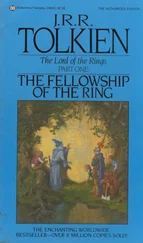Helge Fauskanger - J.R.R. Tolkien’s Lord’s prayer and Hail Mary in Quenya - Syntactical and Etymological Analysis
Здесь есть возможность читать онлайн «Helge Fauskanger - J.R.R. Tolkien’s Lord’s prayer and Hail Mary in Quenya - Syntactical and Etymological Analysis» весь текст электронной книги совершенно бесплатно (целиком полную версию без сокращений). В некоторых случаях можно слушать аудио, скачать через торрент в формате fb2 и присутствует краткое содержание. Жанр: Языкознание, на английском языке. Описание произведения, (предисловие) а так же отзывы посетителей доступны на портале библиотеки ЛибКат.
- Название:J.R.R. Tolkien’s Lord’s prayer and Hail Mary in Quenya: Syntactical and Etymological Analysis
- Автор:
- Жанр:
- Год:неизвестен
- ISBN:нет данных
- Рейтинг книги:5 / 5. Голосов: 1
-
Избранное:Добавить в избранное
- Отзывы:
-
Ваша оценка:
- 100
- 1
- 2
- 3
- 4
- 5
J.R.R. Tolkien’s Lord’s prayer and Hail Mary in Quenya: Syntactical and Etymological Analysis: краткое содержание, описание и аннотация
Предлагаем к чтению аннотацию, описание, краткое содержание или предисловие (зависит от того, что написал сам автор книги «J.R.R. Tolkien’s Lord’s prayer and Hail Mary in Quenya: Syntactical and Etymological Analysis»). Если вы не нашли необходимую информацию о книге — напишите в комментариях, мы постараемся отыскать её.
J.R.R. Tolkien’s Lord’s prayer and Hail Mary in Quenya: Syntactical and Etymological Analysis — читать онлайн бесплатно полную книгу (весь текст) целиком
Ниже представлен текст книги, разбитый по страницам. Система сохранения места последней прочитанной страницы, позволяет с удобством читать онлайн бесплатно книгу «J.R.R. Tolkien’s Lord’s prayer and Hail Mary in Quenya: Syntactical and Etymological Analysis», без необходимости каждый раз заново искать на чём Вы остановились. Поставьте закладку, и сможете в любой момент перейти на страницу, на которой закончили чтение.
Интервал:
Закладка:
ámen anta síra ilaurëa massamma ·
Give us this day our daily bread,
ámenimperative particle á with a dative pronoun men "to us, for us" directly suffixed (evidently # me "we, us" + dative ending - n ), antaverbal stem "give", connecting with the imperative particle in the previous word to produce an imperative "give!" The dative form # men is the indirect object of this phrase, hence "give (to) us". síra"this day, today" (a somewhat surprising form; we might rather have expected * síre – see Lexical Commentary). ilaurëa"daily" ( il-aurë-a "every-day-ly"), massamma"our bread" ( massa "bread" + - mma pronominal ending denoting exclusive "our", as in Átaremma in the first line).
*ar ámen apsene úcaremmar sív' emme apsenet tien i úcarer emmen. *
and forgive us our trespasses as we forgive those who trespass against us.
ar"and", ámenimperative particle á combined with the dative pronoun men "for us, to us" as above. apsenestem of the verb "forgive", connecting with the imperative particle and the suffixed dative pronoun to produce a phrase meaning "forgive us". Notice that what is in English would be the direct object of the verb "forgive" is in Quenya the indirect object instead: In Quenya, the direct object is evidently the matter that is forgiven , while the indirect object (the dative object) is the person that is forgiven . This is evident from the next word: úcaremmar"our sins", which is # úcare "sin, misdeed, trespass" + the ending - mma for exclusive "our" + the plural ending - r . (Less probably this could be # úcar "sin, misdeed, trespass" + a connecting vowel e + the other endings; but see úcaremmar in the Lexical commentary.) sív'"as", elided form of * síve (the final vowel e dropping out since the next word also begins in e – there is however no hard-and-fast rule that such elisions have to occur whenever two similar vowels follow one another, cf. na aire esselya rather than * na air' esselya , but prepositions and particles, being unstressed, may be more susceptible to elision than other words). * Síve apparently means "as" when the speakers are comparing with something in their own proximity; see note on tambe and * síve below. emmeemphatic pronoun, exclusive "we" (emphatic we to contrast with those who trespass against us ). apsenetprobably *"forgive them", aorist tense with the pronominal suffix - t for "them" as direct object. This is one of only two published examples of a verb receiving one pronominal ending denoting the object only, and the very first example of a finite verb with such an ending (the other example being an infinitive: karita s "to do it ", VT41:13, 17). In all other known examples, verb-forms that include a pronominal suffix denoting the object also have a suffix denoting the subject , the latter preceding the former. An example involving the same ending - t "them" as in apsenet is provided by the Cormallen Praise, that has andave laituvalmet for "long shall we praise them". Here the ending - t "them" is preceded by - lme - "we": object and subject respectively. Emme apsenet "we forgive them" may be seen as a reworked form of * apsenemmet , the subject being expressed as an independent pronoun instead of a suffix since "we" is to be emphatic, but the ending - t for "them" remains suffixed to the verb. tienapparently dative pronoun "(for) them" or "(to) them" (the dative of te , see Lexical commentary). This would be the indirect object of the verb "forgive", and since tien is followed by the relative sentence "who trespass against us", it is clear that the dative pronoun denotes the ones that are forgiven. As we have already observed, in Quenya the indirect (dative) object of "forgive" denotes the ones that are forgiven, the direct object the matter that is forgiven: ámen apsene úcaremmar , "forgive us [ men , indirect object] our trespasses [ úcaremmar , direct object]". The - t suffixed to the verb "forgive" in emme apsene t must likewise be the direct object, "we forgive them ", but again, this "them" must refer to the things that are forgiven rather than the people who are forgiven: the people are referred to by the independent dative object tien instead. Tolkien apparently used the wording *"forgive us our trespasses as we forgive them [that is, trespasses] for the benefit of those [ tien , dative] who trespass against us". irelative pronoun "who", úcarerverb "trespass" or "sin", literally rather "do misdeeds": aorist tense with the plural ending - r . (Based on other examples we would rather expect * úcarir , and probably also * apsenit rather than apsenet above – see care in the Lexical commentary: Regarding the formation of the aorist, Tolkien may have been in a somewhat unorthodox "phase" when he wrote this text, compared to the system he used both earlier and later.) emmen"against us" (exclusive). This is the pronoun emme (attested earlier in the sentence) with the dative ending - n , our first example of an emphatic pronoun with a case ending. This is also our first example of the dative being used to denote an indirect object adversely affected by the verbal action, hence the English translation "against us" rather than "for us, to us". All previously attested examples of the dative are used to denote indirect objects that benefit from the verbal action, e.g. nin "for me" in the sentence sí man i yulma nin enquantuva? "now who will refill the cup for me ?" in Namárië. (As far as grammar is concerned, tien i úcarer emmen could probably also be interpreted **"those who trespass for us"; the context must be taken into account when determining precisely how the dative is to be understood.)
Again we see Tolkien basing the Quenya version of the prayer on English translations rather than the Greek text of Matthew 6:12, which reads tois opheiletais hemôn = "our debtors" rather than the longer paraphrase "those who trespass (or, sin) against us". This wording is quite typical for English translations.
Note on tambe and * síve : Both of these words are translated "as, like". Yet they are apparently not interchangeable. In na care indómelya cemende tambe Erumande , "thy will be done, on earth as it is in heaven", the word "as" points far away from the speakers (literally all the way to heaven). On the other hand, in the sentence sív' emme apsenet tien i úcarer emmen , " as we forgive those who trespass against us", the word "as" refers to the situation of the speakers themselves. Thus, the distinction apparently has to do with the distance between the speaker and the thing/situation "as" refers to. For instance:
* Caruvalmes síve queni sinome oi acárier ta,
"We will do it like people in this place have always done that,"
* ar lá tambe carintes i ostosse .
"and not like they do it in the city."
The first "like" refers to a situation close to the speaker, the other to a situation that is not close to the speaker. Presumably one could use the evidently "neutral" word for "as, like", namely ve , for both sív[e] and tambe (indeed both forms seem to include ve , see Lexical Commentary) – but Tolkien apparently built into Quenya the possibility of making some fine distinctions that are not regularly expressed in English. Since Quenya is in many ways the language of Tolkien’s mythos, the tongue of the High Elves of the Blessed Realm, it is not surprising that he tried to make it rich and full of subtle nuances.
Читать дальшеИнтервал:
Закладка:
Похожие книги на «J.R.R. Tolkien’s Lord’s prayer and Hail Mary in Quenya: Syntactical and Etymological Analysis»
Представляем Вашему вниманию похожие книги на «J.R.R. Tolkien’s Lord’s prayer and Hail Mary in Quenya: Syntactical and Etymological Analysis» списком для выбора. Мы отобрали схожую по названию и смыслу литературу в надежде предоставить читателям больше вариантов отыскать новые, интересные, ещё непрочитанные произведения.
Обсуждение, отзывы о книге «J.R.R. Tolkien’s Lord’s prayer and Hail Mary in Quenya: Syntactical and Etymological Analysis» и просто собственные мнения читателей. Оставьте ваши комментарии, напишите, что Вы думаете о произведении, его смысле или главных героях. Укажите что конкретно понравилось, а что нет, и почему Вы так считаете.












